CASE STUDY


Our farm design affirms and welcomes people in all their diversity.
TONY MCCAUL
Executive Director, Critter Barn



Our farm design affirms and welcomes people in all their diversity.
TONY MCCAUL
Executive Director, Critter Barn
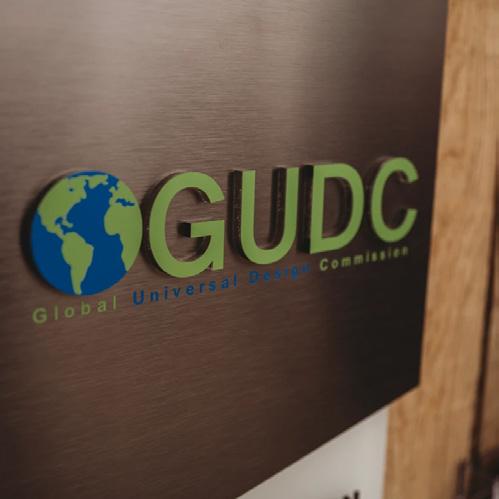
Critter Barn is an educational farm in Zeeland, MI dedicated to teaching about farming and agriculture while inspiring people of all ages, and all abilities, through the miracles in nature found at the farm. The farm serves as a popular destination for local families and school groups who come to enjoy the many animals from ducklings, lambs, and kittens, to rabbits, goats, and cows. Since 2014, the Barn’s site and building plans have included accessibility as a high priority in order to reach all individuals no matter their background or ability.
During a recent expansion project, Critter Barn conducted research with disability advocate groups and the community. They hired Progressive Companies to complete a Universal Design (UD) assessment and pursue certification through the Global Universal Design Commission—ultimately achieving silver-level certification. “By combining the benefits of Universal Design at our new farm, along with a resource room, sidewalks everywhere, adaptive equipment, and inclusive playground equipment, Critter Barn is creating a first-of-itskind facility,” said Mary Rottschafer, former Executive Director.

Because Critter Barn was originally built on the homestead of a former dairy farm, the grounds were not sufficient for people with physical disabilities to easily get around. In the past, Rottschafer and her team would have to take 4x8 sheets of plywood to create a pathway for people with a wheelchair, or sometimes pull the chair backwards along the gravel paths. She thought to herself, “there’s got to be a better way…if we build a new farm we’re going to get this fixed.”
While attending an event at Mary Free Bed YMCA in Grand Rapids, Rottschafer took special notice of the YMCA’s inclusively designed building and grounds. That’s when she learned the term “Universal Design” — the standard which goes beyond ADA requirements to ensure all are welcome. She knew immediately that she wanted to pursue UD for the new farm, and contacted Mike Perry at Progressive Companies to see how the team could help through a Universal Design assessment.
In the meantime, Rottschafer also reached out to the Ottawa Area Center which serves children with physical and cognitive disabilities. Teachers had brought their students to the Critter Barn in the past, but not without challenges. Rottschafer met with teachers and asked “what needs to happen so your kids can come?” Through those conversations she learned about a company in New York called Rifton Equipment that makes adaptive equipment — supportive tricycles, gators, pacers, and more — which help support people with limited mobility to move around more independently. While Progressive Companies was in process of assessing the property, she visited the Rifton studio and was also introduced to the Sinclair Company and GameTime equipment, who specialize in designing inclusive playgrounds and play equipment.
Our relationship with Michael Perry and the idea that we could create a place for everyone, has been one of the sweetest experiences in building our new farm. Never would we ever be capable on our own of the proper awareness and thoroughness that Mike brought to the table. Our goal of welcoming every person, no matter what their abilities, so they could fully enjoy the farm experience has been realized because of Mike’s expertise and his willingness to share.
Former Executive Director, Critter Barn
Through all of these conversations, the design of the new Critter Barn began to take shape. The new 36-acre, $10 million build-out includes a “golden mile” of extra-wide sidewalks and hallways, zero-threshold entries, barrier-free restrooms, doors without knobs, simple signage, and full-height windows to animal displays. The farm has also provided adaptive equipment to help people navigate the site more easily. Future phases will see the addition of an accessible treehouse and playground, and sensory resource room in the welcome center.
“There’s an emotional connection to the experience that I see in the eyes of a [person] of any age,”
Rottschafer said. “For example, the 90-year-old woman who wanted to hold a lamb in her lap, or the reaction of a child who is blind. Everyone benefits from that connection with nature. When you’re there for those incredibly precious moments, your desire to bring that level and quality of experience to everyone just increases. Why wouldn’t you want to make everybody happy?”
Rottshafer has since presented on Universal Design and access at the Michigan Agro-tourism Association, bringing Critter Barn’s story to a wider audience. She received positive feedback as other members considered positive changes they could make at their own orchards, lavender farms, and more.
“We want each person who visits the Critter Barn to love the experience,” said Tony McCaul, executive director. “We want them to feel the joy of belonging, of moving easily and participating fully without having to ask for help. Our farm design affirms and welcomes people in all their diversity. Each visitor can have a great experience without having to adapt to enjoy it.”
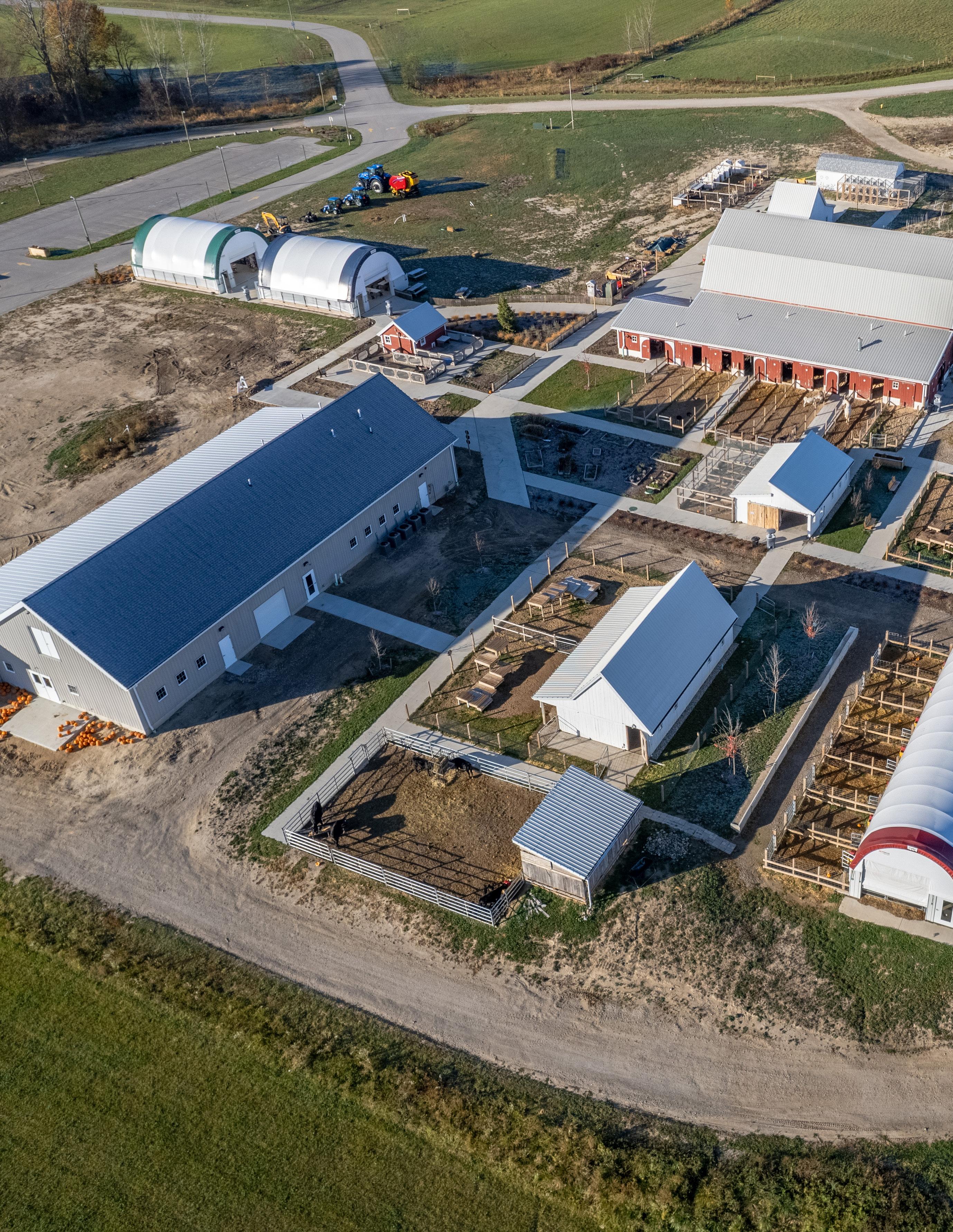
Remove barriers so all users can experience the entire farm and its animals in an equitable way.
Increase attendance and grow as a regional community asset.
Provide a safer environment for all users as they travel around the farm.
Be the first farm in the world to receive certification by the Global Universal Design Commission.


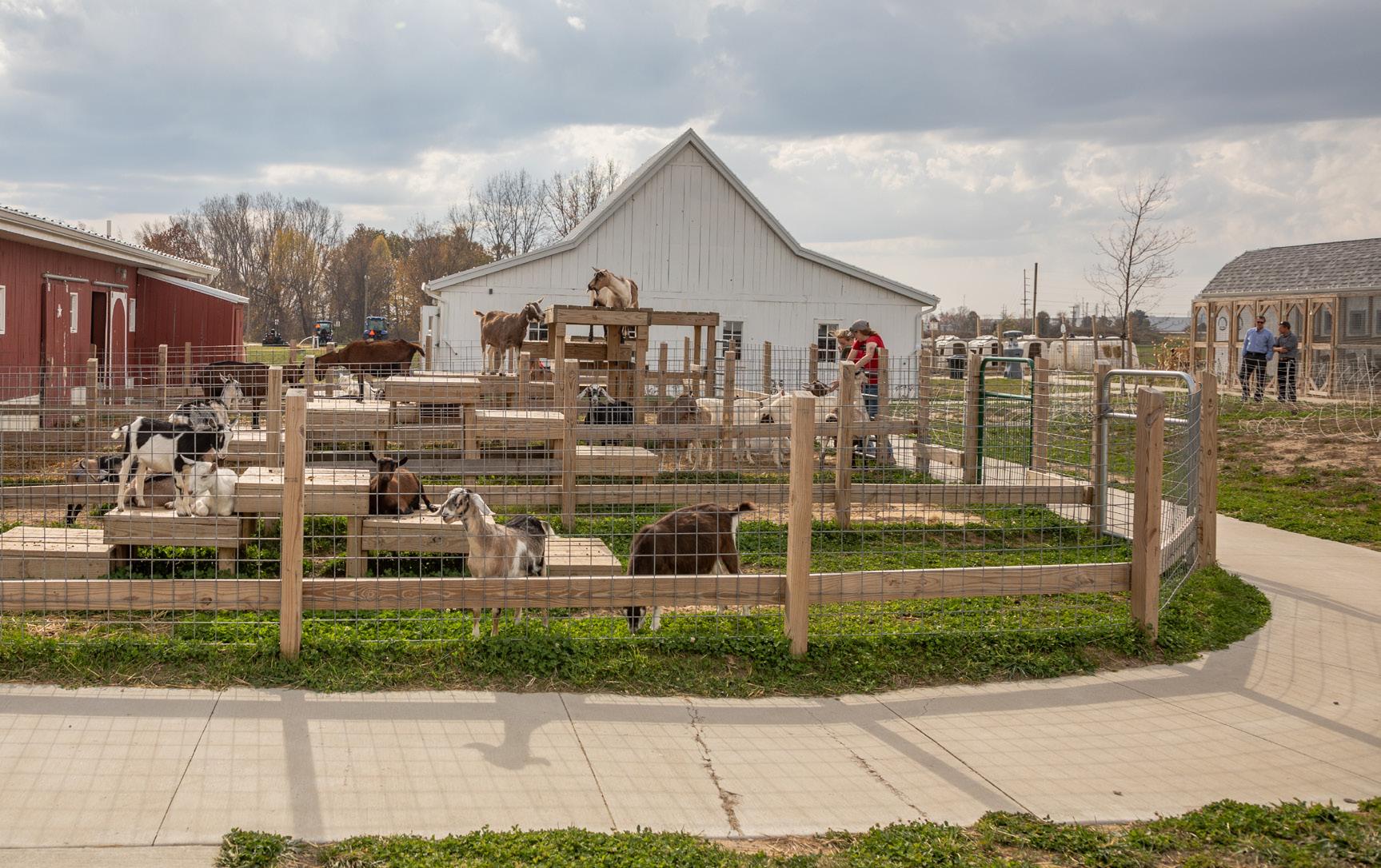
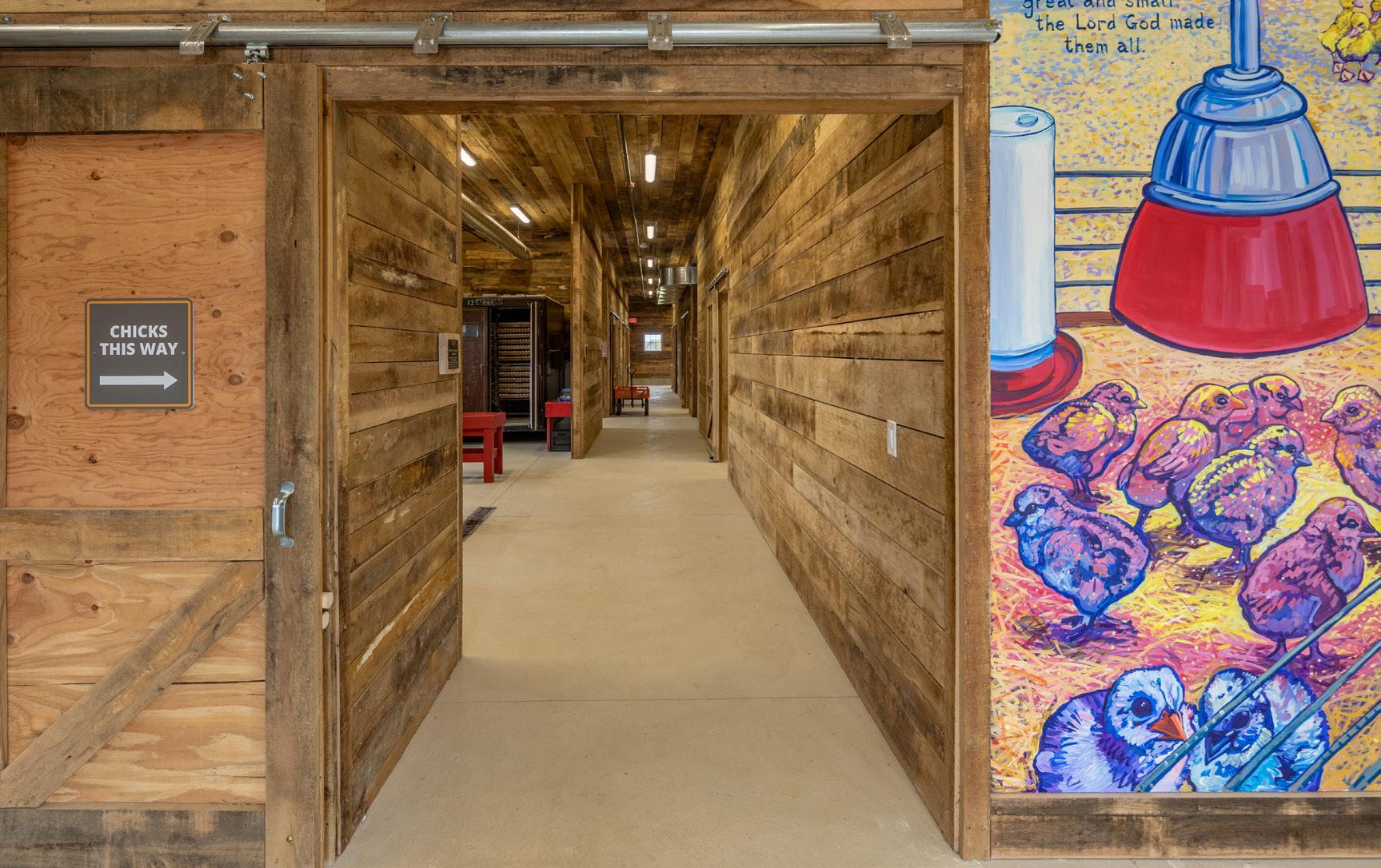
Universal Design (UD) is the idea that spaces and places can be designed to be accessible and usable by the broadest range of people possible. It is a voluntary set of guidelines that go above and beyond the requirements of the Americans with Disabilities Act. In applying these principles to built environments, we’re given the opportunity to creatively embrace differences among people through design.
Our consulting team has been brought on board to design, and assess the current spaces and programs of several Fortune 500 companies, furniture companies, and community organizations to educate their team members, create strategies to improve accessibility, remove physical and social barriers, and create UD standards that support their mission. These entities are seeing the need to provide inclusive environments for team members, providing places and technologies designed with everyone in mind and better supporting the world we all live in.
• We are a full-service architectural, interiors and engineering firm that is passionate about designing spaces and places that are truly inclusive, more accessible, and safer.
• We lead stakeholder-wide UD educational sessions to build understanding and alignment.
• We assess campuses and facilities against our proprietary UD benchmarks and checklist, helping organizations create truly inclusive, more accessible, and safer environments.
• We provide specific UD strategy recommendations that support the organization’s inclusion goals and promises.
• Our strategies are prioritized through filters of positive impact to users of the spaces and relative cost. We refer to these as P1 and P2 priorities.
• We develop organization-specific UD standards for global and community organizations.
• We lead global UD training programs.
We have implemented these services in 29 countries for a variety of environments including workspaces, community projects, outdoor spaces, industrial, laboratories, fitness, wellness, retail, and airports.
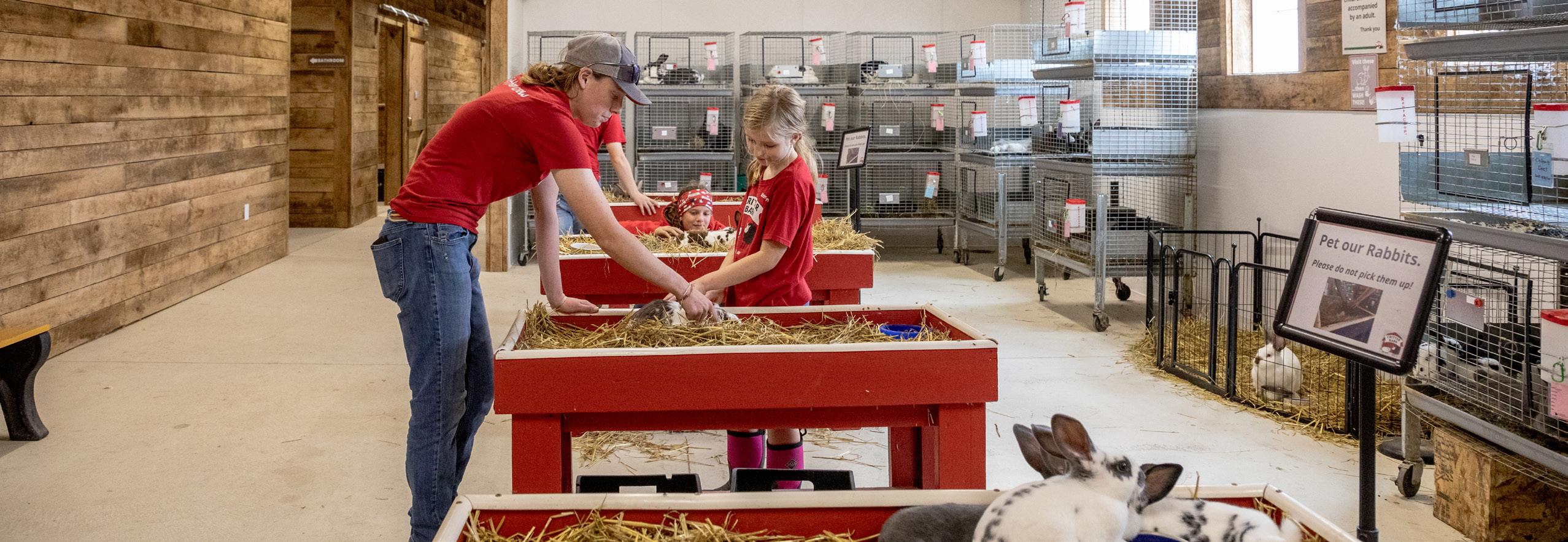
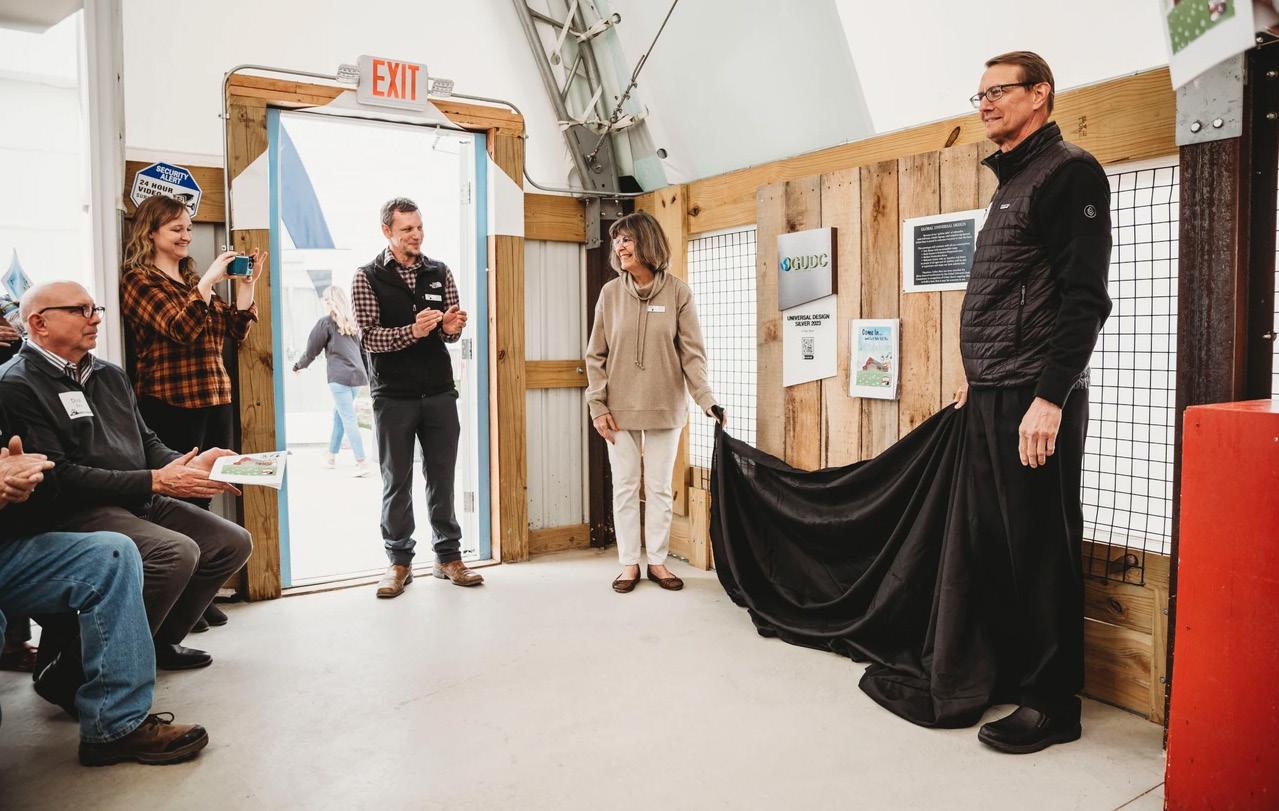

PRINCIPAL, UNIVERSAL DESIGN CONSULTANT Master of Architecture, University of Michigan mperry@weareprogressive.com | 616.340.6204
Mike is a licensed architect in 20 states and principal of Progressive Companies. He serves on the Board of Directors of the Global Universal Design Commission, frequently writing and presenting on the topic of UD in the built environiment. He has led discussions at major Universities around the country and at national conferences including the Zero Project in Vienna, the San Antonio lnclusion Summit, CoreNet Global, Bloomberg Leadership Summit, and Disability IN Chicago. In addition he is helping several Fortune 500 organizations with implementing accessibility and inclusion best practices across their global footprint.
People are at the heart of everything we do, and during the design process we need to consider a wide variety of individual abilities. UD ensures we value everyone as part of human experience by creating spaces designed for all.
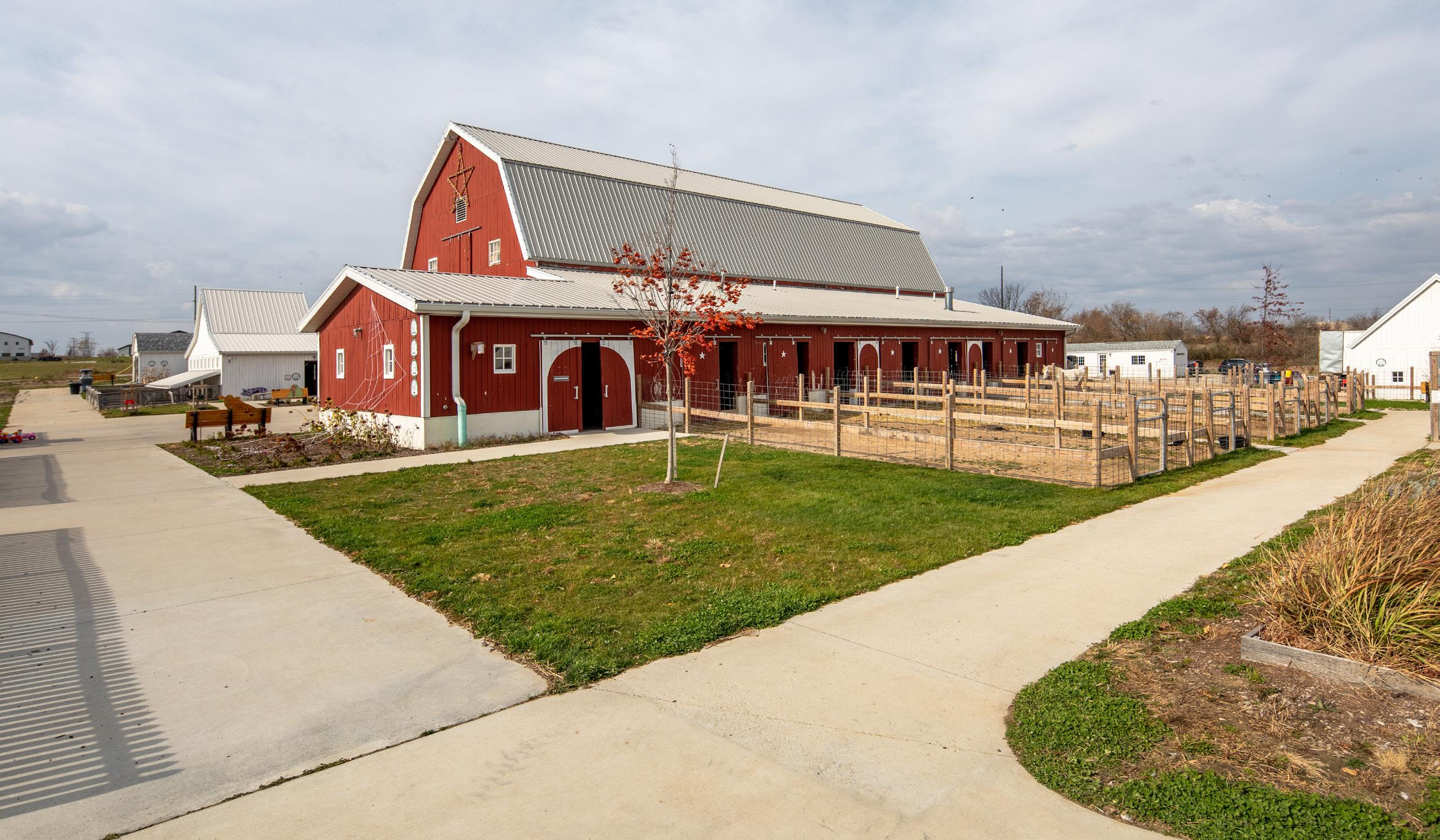
Progressive Companies has developed proprietary Universal Design tools that have been recognized by the Global Universal Design Commission. These tools and practices have been developed through hundreds of accessibility engagements, research, and designing facilities in multiple markets and locations. We believe they provide for the latest best practices in designing for all and are continually being tested and improved upon. These tools align with the seven principles of Universal Design.
The Universal Design Assessment Checklist is the keystone document identifying strategies and priorities which should be discussed at the start of the design process and categorized in one of two priority levels:
HIGHEST PRIORITY is defined as a UD stragey that is no or low cost with high impct to the users and organization.
SECONDARY PRIORITY is defined as a UD strategy that is considered higher cost and innovative to the organization, but provides positive impact to the user and organization.
Universal Design is a process guided by seven principles that enable and empower a diverse population.
The design is useful to people with diverse abilities.
The design accommodates a wide range of individual preferences and abilities.
2+2=4
Use of the design is easy to understand, regardless of the user’s experience, knowledge, or language skills.
Use of the design communicates necessary information effectively to the user, regardless of ambient condition or the user’s sensory ability.
The design minimizes hazards and the adverse consequences of accidental or unintended actions.
The design can be used efficiently and comfortably with minimum fatigue.
Appropriate size and space is provided for approach, reach, and use regardless of user’s body size, posture, or mobility.
• Shows you are inclusive, implementing best practices and living your values on the global stage
• Promotes equity and independence
• Promotes a differential for talent attraction and employee retention
• Facilities become inclusive for all
• Elevates safety while reducing slips and falls
• Provides a platform and opportunities for partnerships
• Builds a healthier community
Creating a More Inclusive Tomorrow, Together.



















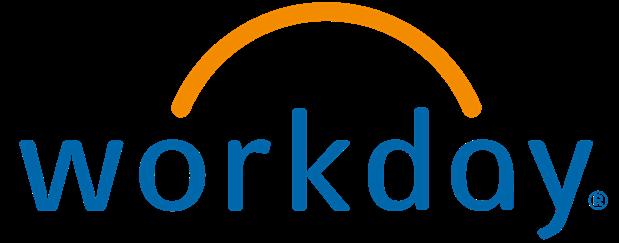


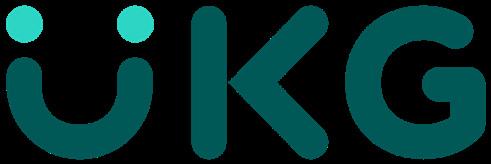




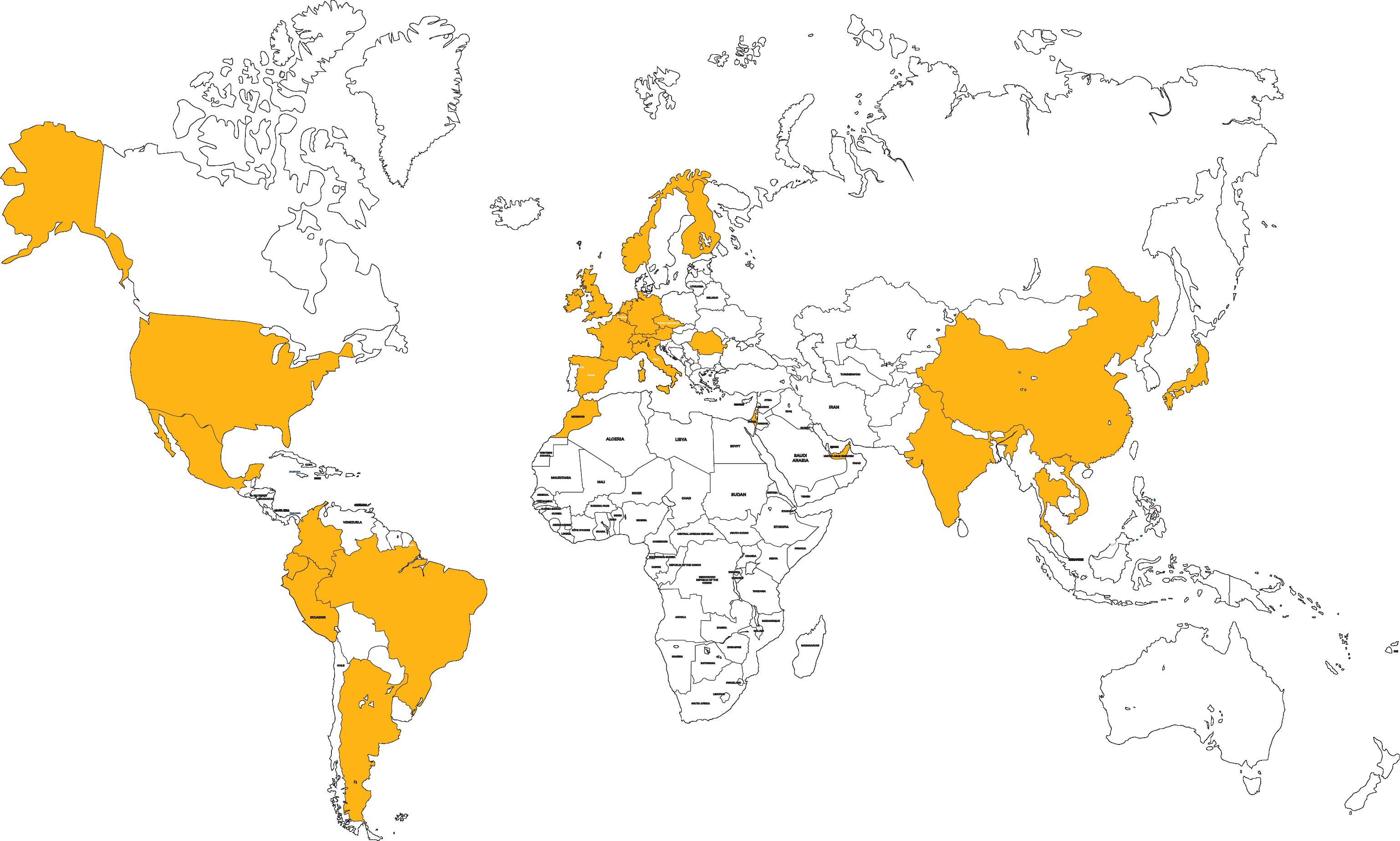
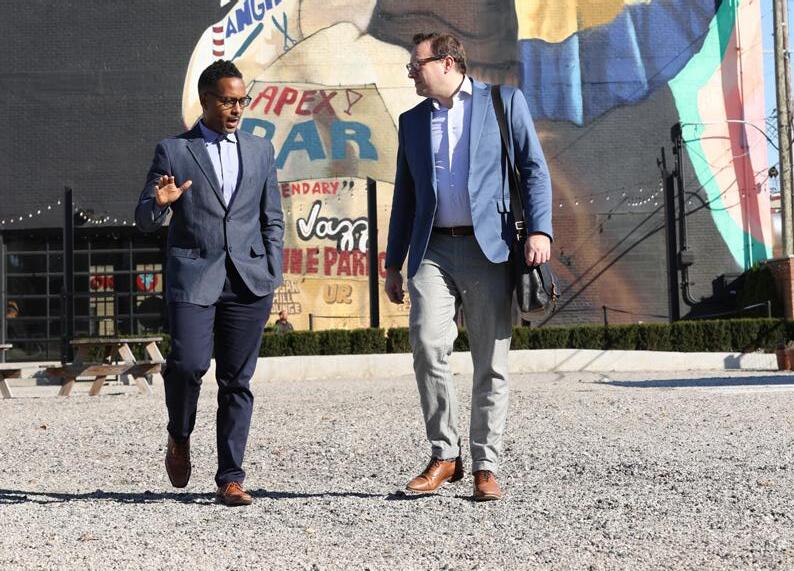
Progressive Companies is a multidisciplinary national design firm connecting people, places and communities through transformative spaces, structures, pathways, and environments. We believe innovation is more than leading with the best technologies and latest trends – it’s a creative process beginning with curiosity and diving deep into understanding your world. As problem-solvers, our team of designers, architects, consultants, engineers, and strategists enthusiastically work alongside you to envision a bold, new future.
From modest beginnings of four original engineering partners in 1962, to over 275 employees serving clients across the nation today, Progressive Companies has always thrived on an entrepreneurial mindset. As an employee-owned business, individuals take personal accountability for representing the firm’s values of leadership, learning, trust, and diversity.
Our talented workforce brings decades of expertise in all facets of architecture, engineering construction, and planning – with a broad and deep portfolio representing 10 markets and projects in 49 states. We started in Grand Rapids, MI and now have regional offices in Charlotte, NC and Detroit, MI.
• Architecture
• Civil Engineering
• Community Workshops
• Construction Management
• Controlled Environments
• Electrical Engineering
• Healthcare Planning
• Automotive
• Civic
• Education
• Health and Wellness
• Mixed Use
• Interior Design
• Landscape Architecture
• Lighting Design
• Logistics
• Master Planning
• Mechanical Engineering
• Program Design and Delivery
• Roads and Utilities
• Structural Engineering
• Sustainable Design
• Traffic Engineering
• Universal Design
• Workplace Strategy
• Worship
• Science and Industry
• Transportation
• Urban Design and Planning
• Water Resources
• Workplace